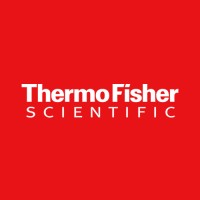CD85j / PE-eFluor 610 / HP-F1
Product Details
| Description | CD85j (ILT2) Monoclonal Antibody (HP-F1), PE-eFluor™ 610, eBioscience™ | |
|---|---|---|
| Conjugate | PE-eFluor 610 | |
| Clone | HP-F1 | |
| Target Species | Human | |
| Applications | FC | |
| Supplier | Thermo Fisher Scientific | |
| Catalog # | Sign in to view product details, citations, and spectra | |
| Size | ||
| Price | ||
| Antigen | ||
| Host | ||
| Isotype |
About CD85j
This gene is a member of the leukocyte immunoglobulin-like receptor (LIR) family, which is found in a gene cluster at chromosomal region 19q13.4. The encoded protein belongs to the subfamily B class of LIR receptors which contain two or four extracellular immunoglobulin domains, a transmembrane domain, and two to four cytoplasmic immunoreceptor tyrosine-based inhibitory motifs (ITIMs). The receptor is expressed on immune cells where it binds to MHC class I molecules on antigen-presenting cells and transduces a negative signal that inhibits stimulation of an immune response. It is thought to control inflammatory responses and cytotoxicity to help focus the immune response and limit autoreactivity. Multiple transcript variants encoding different isoforms have been found for this gene. [provided by RefSeq, Jul 2008]
This gene is a member of the leukocyte immunoglobulin-like receptor (LIR) family, which is found in a gene cluster at chromosomal region 19q13.4. The encoded protein belongs to the subfamily B class of LIR receptors which contain two or four extracellular immunoglobulin domains, a transmembrane domain, and two to four cytoplasmic immunoreceptor tyrosine-based inhibitory motifs (ITIMs). The receptor is expressed on immune cells where it binds to MHC class I molecules on antigen-presenting cells and transduces a negative signal that inhibits stimulation of an immune response. It is thought to control inflammatory responses and cytotoxicity to help focus the immune response and limit autoreactivity. Multiple transcript variants encoding different isoforms have been found for this gene. [provided by RefSeq, Jul 2008]
About PE-eFluor 610
PE-eFluor™ 610 (PE-eF610, RPE-eF610) from Thermo Fisher Scientific is an orange-emitting tandem fluorophore that combines pycoerythrin (PE) and eFluor™ 610. The donor molecule, PE can be excited by the 488-nm blue, 532-nm green, or 561-nm yellow-green laser and and transfers energy to the acceptor molecule, eF610, which emitts light that can be captured with a 610/20 nm bandpass filter. PE-eF610 has an excitation peak at 565 nm and an emission peak at 607 nm, and is suitable alternative to PE-Texas Red®. PE-eF610 is mainly used for flow cytometry. This tandem is often a great option because of PE is excitable by multiple lasers due to its broad excitation spectrum and the eFluor™ 610 acceptor molecule emits brightly in the Orange/Red spectrum. Many cytometers are commonly set up with the 610/20 bandpass filter that can detect this fluorophore's emission. This dye is part of the larger eFluor™ dye family, developed by eBioscience which is now part of ThermoFisher Scientific.
PE-eFluor™ 610 (PE-eF610, RPE-eF610) from Thermo Fisher Scientific is an orange-emitting tandem fluorophore that combines pycoerythrin (PE) and eFluor™ 610. The donor molecule, PE can be excited by the 488-nm blue, 532-nm green, or 561-nm yellow-green laser and and transfers energy to the acceptor molecule, eF610, which emitts light that can be captured with a 610/20 nm bandpass filter. PE-eF610 has an excitation peak at 565 nm and an emission peak at 607 nm, and is suitable alternative to PE-Texas Red®. PE-eF610 is mainly used for flow cytometry. This tandem is often a great option because of PE is excitable by multiple lasers due to its broad excitation spectrum and the eFluor™ 610 acceptor molecule emits brightly in the Orange/Red spectrum. Many cytometers are commonly set up with the 610/20 bandpass filter that can detect this fluorophore's emission. This dye is part of the larger eFluor™ dye family, developed by eBioscience which is now part of ThermoFisher Scientific.
Experiment Design Tools
Panel Builders
Looking to design a Microscopy or Flow Cytometry experiment?
Validation References
Reviews & Ratings
| Reviews |
|---|
Looking for more options?
495 CD85j antibodies from over 27 suppliers available with over 70 conjugates.





